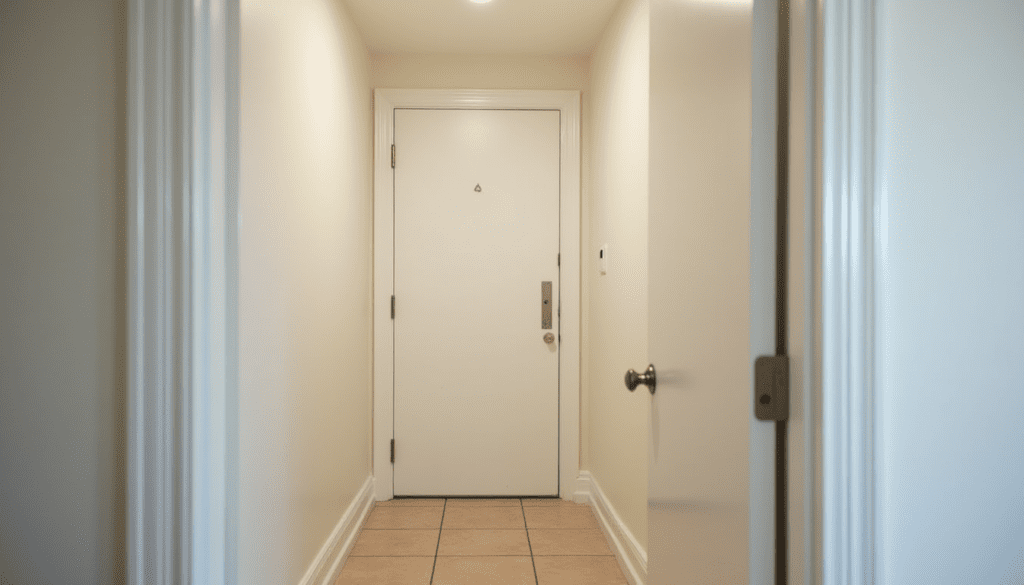For many landlords in Belleville, NJ, few challenges are as frustrating as tenants who consistently pay their rent late. While one delayed payment may be understandable, repeated late payments can disrupt your cash flow, interfere with your property expenses, and even lead to legal disputes. Managing this issue requires a clear understanding of local laws, firm lease agreements, effective communication, and a balance between firmness and fairness. This article dives deep into strategies landlords can use to handle tenants who habitually pay rent late in Belleville, while also exploring legal considerations, communication tips, and proactive solutions.
1. Why Timely Rent Matters for Landlords
Rent is the lifeblood of any rental property business. In Belleville, property owners depend on rent to cover mortgage payments, property taxes, maintenance, insurance, and sometimes utilities. When tenants delay payments, it creates a ripple effect that impacts more than just the landlord—it can strain vendors, contractors, and property managers as well.
For small landlords with only one or two units, a late rent check can be devastating. Unlike larger property management companies that may have a buffer, individual landlords often rely on prompt payments to meet financial obligations. This is why managing late rent in Belleville requires not only patience but also practical systems that reduce delays and set clear expectations.
Consistent on-time rent payments also help build trust between landlord and tenant. When tenants know they are expected to pay on time and follow through, the landlord-tenant relationship tends to be smoother. Conversely, when late payments become routine, it introduces tension and the possibility of disputes.
2. Understanding Local Rules: Late Fees & Evictions in Belleville
Before a landlord takes action against a late-paying tenant, it’s important to understand the local and state laws that apply. Belleville is in Essex County, New Jersey, and rental rules are governed both by statewide landlord-tenant law and any municipal rent-leveling ordinances that may apply to certain properties.
2.1 Belleville Rent-Leveling Rules (if applicable)
Some areas of New Jersey, including parts of Essex County, have rent-leveling or rent-control ordinances that may restrict how landlords enforce lease terms. While Belleville itself does not have as strict rent control as Newark, it’s important to review local guidelines. These may affect how much late fee can be charged and what process is required before pursuing eviction.
2.2 New Jersey’s Tenant Late Payment Legal Framework
New Jersey landlord-tenant law is detailed and protects tenants’ rights while also providing landlords with tools to collect overdue rent. According to the New Jersey Department of Community Affairs, nonpayment of rent is one of the primary legal grounds for eviction. However, landlords must follow strict notice requirements.
Late fees are allowed in New Jersey, but they must be reasonable and clearly outlined in the lease agreement. Excessive or undisclosed fees could be challenged in court. Generally, late fees of 5% of monthly rent are considered acceptable, though exact amounts vary.
Understanding these rules protects landlords from legal missteps and ensures tenants are treated fairly. A solid foundation of compliance helps prevent disputes from escalating unnecessarily.
3. Setting Clear Expectations in the Lease
The best defense against chronic late rent is a strong lease agreement. When landlords in Belleville prepare their leases, it’s essential to include clear language about rent due dates, acceptable payment methods, grace periods, and late fees. If these details are vague or missing, tenants may assume that late payments are not a serious issue.
A strong lease should include:
- Rent due date: Specify the exact date each month rent must be paid.
- Grace period: If you offer a grace period (for example, five days), make it clear.
- Late fees: State the amount and when it will be applied.
- Accepted payment methods: Online payments, checks, money orders, etc.
- Consequences of repeated lateness: Indicate possible escalation steps.
By putting these terms in writing, landlords protect themselves legally and provide tenants with no room for misinterpretation. For additional guidance, property owners can explore resources like Avail’s landlord education guides, which emphasize clear lease structures as a key to preventing late rent problems.
4. Implementing Late Rent Charges & Penalties
Late fees are not just punitive; they serve as a deterrent. When tenants know there’s a financial consequence for missing deadlines, they are more likely to prioritize timely payments. In Belleville, landlords commonly charge between $25–$75 or 5% of the monthly rent as a late fee. This aligns with New Jersey’s allowance for reasonable late charges, as long as it’s spelled out in the lease.
To ensure compliance:
- Always document the fee structure in the lease.
- Send written notice each time a fee is applied.
- Consider automated rent collection systems that add fees automatically when payments are missed.
However, landlords should strike a balance. Excessive or overly harsh fees may backfire, straining tenant relationships and making it harder to collect rent at all. Instead, use late fees as part of a larger rent collection strategy that includes communication and, if necessary, structured payment plans.
According to a Consumer Financial Protection Bureau report, late rent is a widespread issue across the country, and late fee policies are an important tool for landlords to manage delinquencies fairly.
5. Proactive Rent Collection: Using Online Systems
One of the most effective ways to reduce late rent in Belleville is to embrace technology. Online rent payment platforms allow tenants to pay through bank transfers, credit cards, or mobile apps—removing common excuses such as “the check is in the mail.” These systems also generate automatic reminders, apply late fees seamlessly, and provide landlords with digital documentation.
Advantages of online rent collection include:
- Convenience for tenants (24/7 access to payment options).
- Automatic payment reminders before due dates.
- Instant confirmation for landlords that payments have been made.
- Secure tracking and record-keeping for accounting purposes.
Local property managers in Belleville have increasingly adopted digital platforms because they not only reduce late rent but also strengthen tenant accountability. According to BC Best Law Firm, digital systems also help landlords demonstrate compliance if disputes escalate to legal proceedings.
By combining online rent collection with strong lease terms and a clear late fee policy, landlords create a structured environment where tenants understand expectations and are less likely to pay late repeatedly.
6. Sending Late Rent Notices and Reminders
Even with clear lease agreements and online systems, some tenants will still miss rent deadlines. In Belleville, NJ, landlords should establish a consistent process for sending late rent notices. A written notice not only serves as a reminder but also provides crucial documentation in case legal action becomes necessary later.
Best practices for sending late rent notices include:
- Send promptly: Issue the notice as soon as the rent is late, usually the day after the grace period ends.
- Be professional: Keep the language formal and respectful. Avoid emotional or accusatory tone.
- State details clearly: Include amount owed, due date, late fees applied, and instructions on how to pay.
- Keep a copy: Always retain a copy of notices sent, whether by mail, email, or tenant portal.
Many landlords in Belleville use a combination of digital reminders (emails or SMS) and formal written notices. Digital reminders are a softer approach, while the official notice shows that the landlord takes the lease terms seriously. Together, these methods strike a balance between professionalism and practicality.
By consistently issuing reminders and notices, landlords create a paper trail that can be invaluable if late payments escalate into repeated violations requiring court intervention.
7. Communicating with Tenants: Dialogue Before Escalation
Before considering eviction or legal escalation, landlords in Belleville should prioritize communication. Tenants may fall behind for reasons outside their control—job loss, medical bills, or temporary hardship. Open, professional dialogue can often resolve issues more effectively than immediate legal threats.
When initiating communication, keep these principles in mind:
- Be empathetic but firm: Acknowledge the tenant’s challenges while emphasizing the importance of timely rent.
- Offer clarity: Remind them of the lease terms and potential consequences of continued lateness.
- Propose solutions: Suggest a payment plan, partial payments, or online auto-pay options.
According to Avail’s property management insights, many landlords avoid lengthy disputes by addressing issues early and directly with tenants. Documenting these communications also helps build a strong case if eviction becomes necessary later.
Clear and respectful communication not only improves the chances of repayment but also shows the court—if it comes to that—that the landlord made reasonable efforts to resolve the matter without legal escalation.
8. Offering Payment Plans for Hardship Cases
Sometimes, tenants genuinely cannot pay on time due to financial hardship. Instead of letting the situation spiral into eviction, landlords in Belleville can consider offering structured payment plans. These arrangements allow tenants to catch up gradually while giving landlords assurance of repayment.
When offering payment plans:
- Put everything in writing and have both parties sign.
- Set clear deadlines for installments.
- Include late fees if payments are missed.
- Reserve the right to proceed with eviction if the plan fails.
Payment plans demonstrate flexibility and compassion, which can strengthen landlord-tenant relationships. However, they should not replace consistent rent collection policies. Instead, they should be used selectively for tenants who have a history of reliability but are experiencing temporary setbacks.
As BC Best Law Firm highlights, documented payment plans can also help landlords defend their actions in court by showing that reasonable efforts were made before seeking eviction.
Ultimately, payment plans are a tool that balances enforcement with compassion—helping landlords maintain rental income while giving tenants a fair chance to recover.
9. When to Issue a Pay-or-Quit Notice
If tenants in Belleville continue to pay rent late despite reminders, notices, and offers of flexibility, landlords may need to escalate by issuing a pay-or-quit notice. This formal notice demands that the tenant either pay overdue rent within a specified timeframe or vacate the property.
In New Jersey, the timeline for a pay-or-quit notice can vary depending on the lease terms and whether late rent is recurring. Typically, tenants must be given a short but reasonable period—such as three days—to pay before eviction proceedings begin.
Steps to issue a pay-or-quit notice:
- Deliver the notice in compliance with NJ law (personal delivery or certified mail).
- Include the total amount owed, including late fees if allowed.
- Keep documentation of delivery and contents of the notice.
- Follow through with eviction filing if the tenant does not comply.
The NJ Department of Community Affairs eviction bulletin outlines specific requirements and grounds for eviction, making it an essential reference for landlords considering this step.
While eviction is never the preferred outcome, pay-or-quit notices remind tenants of the seriousness of their obligations and often prompt payment when other methods fail.
10. Document Everything: Why It Matters for Eviction
Thorough documentation is a landlord’s strongest protection when dealing with tenants who consistently pay rent late. Courts in New Jersey require clear evidence of nonpayment, notices served, and attempts at resolution before granting eviction. Without this paper trail, landlords risk delays or even dismissal of their case.
Landlords in Belleville should maintain records of:
- Rent payment history, including dates and amounts received.
- Copies of all late rent notices and pay-or-quit notices.
- Emails, text messages, or letters exchanged with tenants about rent.
- Signed payment plans or agreements.
- Any late fees applied and receipts for payments made.
Digital rent collection systems make this process easier by automatically tracking dates, amounts, and communication logs. If the issue escalates to eviction, this evidence can demonstrate the landlord acted fairly and followed proper procedures.
According to Consumer Finance Bureau research, landlords who maintain accurate documentation not only improve their chances of winning eviction cases but also avoid unnecessary legal expenses.
By documenting everything, landlords in Belleville protect themselves legally, strengthen their case in court, and show they handled tenant issues with professionalism and fairness.
11. Escalating to Legal Action and Eviction
When all other efforts have failed, landlords in Belleville, NJ may have no choice but to escalate to legal action. Eviction is a last resort, but it is sometimes necessary when tenants repeatedly fail to pay rent and ignore notices. The process must follow New Jersey’s strict landlord-tenant laws to avoid delays or dismissals.
The eviction process generally includes:
- Filing a complaint: The landlord submits an official eviction complaint with the Essex County court.
- Court hearing: Both landlord and tenant present evidence, including documentation of late rent and notices served.
- Judgment for possession: If the court rules in favor of the landlord, they issue a judgment allowing eviction.
- Warrant of removal: The sheriff enforces the eviction if the tenant does not vacate voluntarily.
Eviction can be costly and time-consuming, but it is sometimes the only way to regain control of the property. Following guidance from New Jersey’s official eviction bulletin ensures landlords meet legal requirements at every stage.
By treating eviction as a structured legal procedure instead of a personal dispute, landlords can protect their investments while complying with state law.
12. Balancing Enforcement with Tenant Retention
Not every tenant who pays rent late is a “bad tenant.” Sometimes, late payment issues can be resolved with communication, reminders, or flexible options like payment plans. Landlords in Belleville should weigh the long-term value of retaining a tenant against the costs of eviction and turnover.
Tenant turnover is expensive: advertising, vacancy periods, repairs, and screening new renters can cost thousands of dollars. In some cases, working with an otherwise good tenant who occasionally falls behind may be more cost-effective than pursuing eviction.
Strategies to balance enforcement with retention include:
- Offering one-time flexibility for long-term, reliable tenants.
- Providing reminders before rent is due to prevent missed payments.
- Encouraging tenants to use auto-pay systems.
- Applying consistent but fair late fees.
This approach demonstrates professionalism and fairness, which can build a stronger landlord-tenant relationship and reduce turnover costs in the long run.
13. Examples & Anecdotes from Local Experiences
Landlords across Belleville and Essex County often share similar frustrations with late rent payments. On forums like local Reddit landlord groups and New Jersey real estate associations, landlords discuss real-world cases that highlight common patterns:
- A Belleville landlord reported that switching to online rent collection cut late payments in half.
- Another noted that implementing a $50 late fee encouraged tenants to prioritize rent over other bills.
- Some shared that repeated communication—texts, emails, and notices—eventually trained tenants to pay on time.
- Others pointed out that going to court without documentation usually resulted in wasted time and dismissed cases.
These local anecdotes emphasize that while late rent is a common problem, landlords who remain consistent, fair, and legally compliant tend to achieve better outcomes. Learning from others’ experiences can help Belleville landlords avoid costly mistakes.
14. Preventing Late Rent: Incentives for On-Time Payments
While penalties discourage late rent, incentives can encourage on-time payments. Belleville landlords can use positive reinforcement to create a culture of timely rent collection.
Ideas for incentivizing tenants include:
- Discounts: Offer a small discount for tenants who pay early or consistently on time.
- Rewards: Provide gift cards or other small perks for tenants with perfect payment histories.
- Lease benefits: Tenants who always pay on time may be offered lease renewal incentives, such as a reduced rent increase.
- Recognition: Simply acknowledging and thanking tenants for prompt payments can go a long way.
By pairing incentives with late fees, landlords create a balanced system that motivates tenants to prioritize rent. This proactive approach reduces stress for both landlords and renters.
15. Summary Checklist for Managing Late-Paying Tenants
For Belleville landlords looking for a quick reference, here’s a summary checklist of the strategies covered:
- Understand NJ and Belleville rental laws before taking action.
- Include clear late fee and rent terms in lease agreements.
- Use online rent collection systems with reminders.
- Send late rent notices promptly and professionally.
- Communicate openly with tenants before escalating.
- Offer payment plans for tenants facing real hardship.
- Issue pay-or-quit notices when late rent becomes habitual.
- Document everything—payments, notices, and communication.
- Escalate to eviction only as a last resort.
- Balance enforcement with retention to reduce turnover costs.
Following this checklist ensures landlords remain consistent, legally compliant, and financially protected when tenants pay rent late.
16. Final Thoughts: Fairness, Clarity, and Compliance
Managing tenants who consistently pay rent late in Belleville, NJ requires more than just enforcing rules. It demands fairness, clear communication, and a deep understanding of New Jersey’s landlord-tenant laws. By combining strong lease agreements, proactive systems, professional communication, and, when necessary, legal escalation, landlords can protect their investments while maintaining respectful relationships with tenants.
Remember, each case is unique. Some tenants may need compassion and a temporary payment plan, while others may require firm enforcement and eviction proceedings. The key is to remain consistent, document every step, and approach the process with professionalism.
If you are a landlord in Belleville struggling with late-paying tenants and need expert guidance, consider professional property management services. With the right support, you can safeguard your rental income, reduce stress, and ensure your rental property continues to thrive.
Get help today with managing your Belleville rental property.










